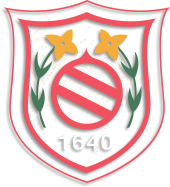History
History Whole School Long Term Plan
Our broad and rich history curriculum has been specifically written and designed to meet the needs of our children, our community and historical events and significant people from the locality while taking into account the requirements of the National Curriculum and the Early Years Framework.
Why teach History?
A high-quality history education will help pupils gain a coherent knowledge and
understanding of Britain’s past and that of the wider world. It should inspire pupils’ curiosity to know more about the past. Teaching should equip pupils to ask perceptive questions, think critically, weigh evidence, sift arguments, and develop perspective and judgement.
History helps pupils to understand the complexity of people’s lives, the process of change, the diversity of societies and relationships between different groups, as well as their own identity and the challenges of their time.
Aims
The national curriculum for history aims to ensure that all pupils:
- know and understand the history of these islands as a coherent, chronological
narrative, from the earliest times to the present day: how people’s lives have shaped
this nation and how Britain has influenced and been influenced by the wider world - know and understand significant aspects of the history of the wider world: the nature of ancient civilisations; the expansion and dissolution of empires; characteristic features of past non-European societies; achievements and follies of mankind
- gain and deploy a historically grounded understanding of abstract terms such as
‘empire’, ‘civilisation’, ‘parliament’ and ‘peasantry’ - understand historical concepts such as continuity and change, cause and
consequence, similarity, difference and significance, and use them to make
connections, draw contrasts, analyse trends, frame historically-valid questions and
create their own structured accounts, including written narratives and analyses - understand the methods of historical enquiry, including how evidence is used rigorously to make historical claims, and discern how and why contrasting arguments and interpretations of the past have been constructed
History – key stages 1 and 2 - gain historical perspective by placing their growing knowledge into different contexts, understanding the connections between local, regional, national and international history; between cultural, economic, military, political, religious and social history; and between short- and long-term timescales.
History forms an integral part of our wider curriculum. We aim to teach our children to understand our past so that we can make thoughtful observations and judgements about it. By learning about the past, we can better understand the world we live in today and make informed decisions about the impact we have on the future.
Central to our approach to teaching history, is a belief that it is far more than a list of dates and events that must be memorised. We use an enquiry-based approach to explore the past and learn about key periods. Studying history in this way inspires children’s curiosity, encourages them to ask critical questions and enables them to have a better understanding of the society in which they live and that of the wider world.
Understanding the World People, Culture and Communities Past and Present
Through their learning in Reception, children begin to make sense of their own life-story and family’s history. They comment on images of familiar situations in the past, compare and contrast characters from stories, including figures from the past. Children talk about the lives of people around them and their roles in society. They know some similarities and differences between things in the past and now, drawing on their experiences and what has been read in class. Deeper understanding about the past is developed through settings, characters and events encountered in books read in class, storytelling and role play.
Key threads run through the units of learning. These provide the building blocks to acquire further knowledge. In Key Stage 1 these focus on having a secure understanding of chronology, key events and people who have shaped the world. In Key Stage 2 these include invasion, democracy, monarchy, equality, empire, civilisation, and society. By carefully mapping these themes across the units and revisiting them in different sequences and steps of learning, we will help children gain historical perspective by placing their growing knowledge into different contexts, understanding the connections between local, regional, national and international history; and between short- and long-term timescales.


